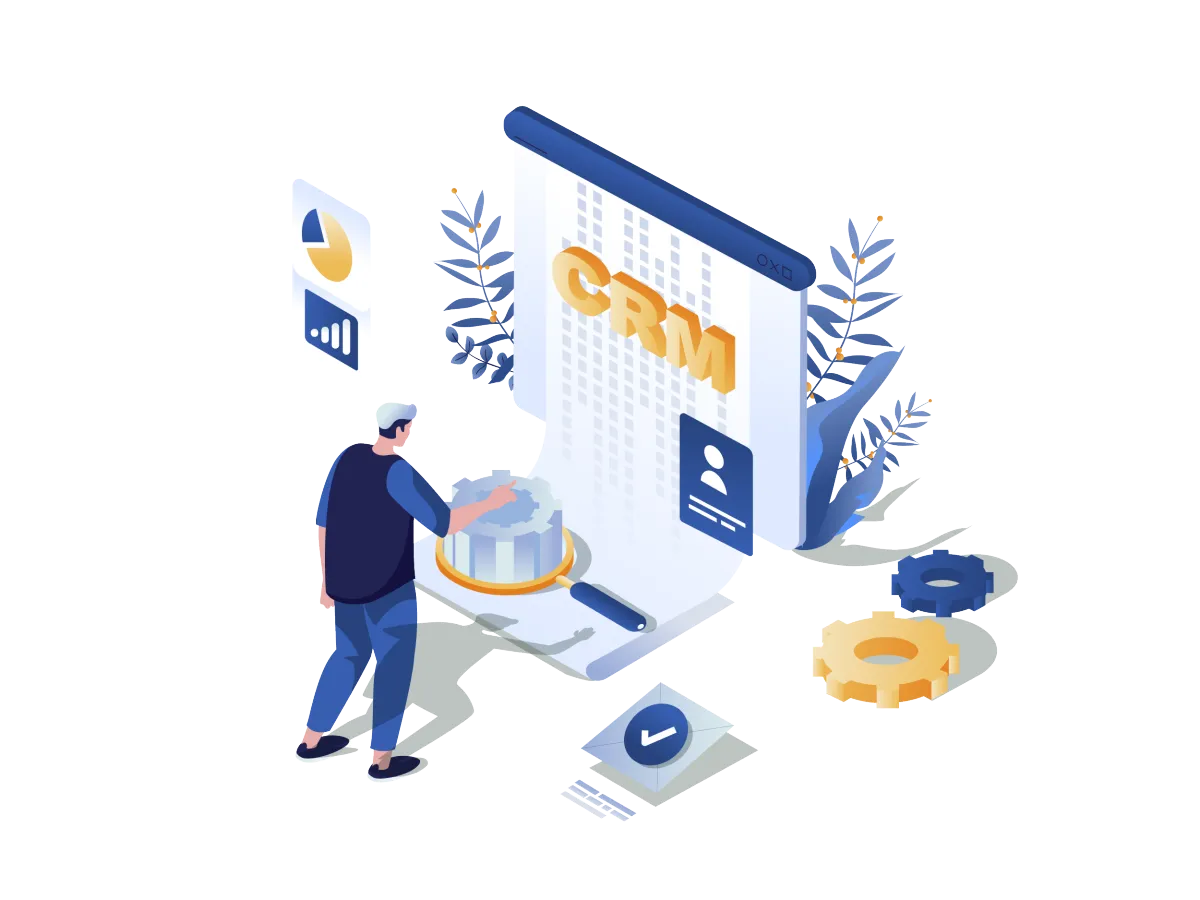
Skyrocket Your Business with CRM: The Must-Know Secrets That Will Transform Your Success!
“CRM is your GPS to a better route on your Business Development journey.” - Bobby Darnell
Introduction:
In the ever-evolving landscape of business, maintaining strong and meaningful relationships with customers is crucial for success. Customer Relationship Management (CRM) has emerged as a powerful tool that businesses of all sizes use to streamline their interactions with customers, enhance customer satisfaction, and boost overall profitability. In this blog post, we'll unravel the mystery behind CRM, exploring its definition, components, and the myriad ways it can revolutionise your approach to customer engagement.

What is CRM?
CRM, or Customer Relationship Management, is a comprehensive strategy and set of technologies designed to manage and nurture relationships with current and potential customers. At its core, CRM revolves around collecting, organizing, and utilizing customer data to create a holistic view of each individual's interactions with a business. This information is then leveraged to tailor marketing, sales, and customer service efforts, ultimately enhancing the overall customer experience.
Components of CRM:
Customer Data Management: Central to CRM is the collection and organization of customer data. This includes contact details, purchase history, communication preferences, and other relevant information. By having a unified database, businesses can gain insights into customer behavior and preferences.
Sales Automation: CRM systems often incorporate sales automation tools that streamline and automate the sales process. This can include lead management, opportunity tracking, and performance analytics, enabling sales teams to focus on building relationships and closing deals.
Marketing Automation: CRM goes beyond sales and extends to marketing automation. Businesses can use CRM to create targeted marketing campaigns, track their effectiveness, and adjust strategies based on customer responses. This personalized approach is key to engaging customers and fostering brand loyalty.
Customer Service and Support: CRM facilitates efficient customer service by providing a centralized platform for managing customer inquiries, complaints, and support tickets. By having a comprehensive view of each customer's history, support teams can offer quicker and more personalized assistance.
Analytics and Reporting: Analytics tools within CRM systems enable businesses to derive actionable insights from customer data. By analyzing trends, businesses can make informed decisions to improve products, services, and customer interactions.
Benefits of CRM:
Improved Customer Satisfaction: By understanding customers' needs and preferences, businesses can personalize their interactions, leading to increased customer satisfaction and loyalty.
Increased Efficiency: Automation of repetitive tasks and streamlined processes contribute to increased efficiency across sales, marketing, and customer service functions.
Enhanced Communication: CRM fosters seamless communication within organizations, ensuring that all teams have access to the same customer data. This enables consistent messaging and a unified approach to customer engagement.
Data-Driven Decision Making: With robust analytics and reporting tools, businesses can make informed decisions based on real-time data, leading to more effective strategies and improved business outcomes.
Conclusion:
In a world where customer expectations are constantly evolving, embracing CRM is a strategic move for businesses looking to thrive in the competitive landscape. By leveraging the power of CRM, organizations can build lasting relationships, drive customer loyalty, and achieve sustainable growth. Whether you're a small business or a multinational corporation, integrating CRM into your operations can be a transformative step toward a customer-centric future.
Click here to see how WebSer can help you create your business CRM
Email:
Contact@Webserconsult.com
Instagram:
@WebSerConsult
Phone:
07445244487

© 2024 - WebSer | All Rights Reserved
Powered By WebSer Consult